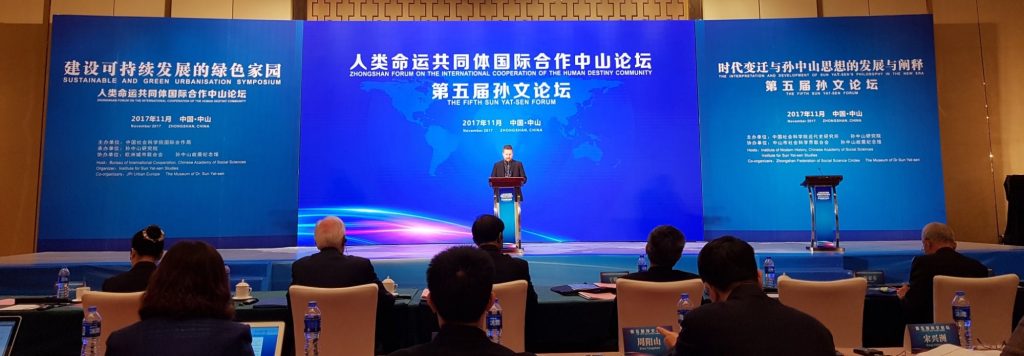Join JPI UE
Faq
FAQ
Please click here for the frequently asked questions we collected.
If you have an additional questions you are welcome to mail us at info@jpi-urbaneurope.eu
Zhongshan, a 3.2 million city – in the midsize category by China standards – sees challenges ahead when the new highway bridge between Hong Kong and Zhuhai on mainland China is to be built over the bay: housing prices are skyrocketing, the city attracts more and more youth and competence in service and high-tech areas from the rest of China, as a field-trip visit to Ming Yang Smart Energy facility in the Dayong District showed. This was a backdrop to the joint China Academy for Social Science (CASS) and JPI Urban Europe workshop on Sustainable and Green Urbanisation 21–22 November 2018.
Exchange on innovative concepts, methods, tools and policies
The workshop framed the main thematic perspective sustainable and green urbanisation and was set to discuss three topics in a succession of panel sessions:
– Structural adjustment and new urban economies
– Climate change and green development
– Smart city and big data
Participants from European urban research and innovation and CASS institutes exchanged views and insights from Chinese and European work to meet the challenges involved.
The objective was to present and exchange on innovative concepts, methods, tools and policies to support sustainable urbanisation, as well as to share experiences from European and Chinese cases and demonstration projects.
Since there are many China–Europe collaboration opportunities crafted at the moment, not least the coming JPI Urban Europe joint call with National Natural Science Foundation of China (NSFC).
JPI Urban Europe’s main welcoming and opening message was to open more collaboration between European and Chinese R&I – including city authorities and urban stakeholders – around how to support urban sustainable transformations. Since cities and urban areas will not save the planet on their own. However, if we don’t get the cities and urban areas right, the planet will not be liveable for humans either.

JPI Urban Europe welcome and opening by Jonas Bylund, Management Board.
Photo: Harry Edelman
Conceptual de-fragmentation
Among the many interventions, one illustrative example here was Wang Mou’s (Institute of Urban and Environmental Studies, CASS) analysis on the fragmented setting of various urban sustainable development approaches in Chinese policy and practice. Similar to the European discussion, Wang Mou called for a conceptual de-fragmentation – although seemingly more of collating under one umbrella term and not aiming for a relational approach such as in the European discussion on ‘connecting the dots’ (see news item in this newsletter on the Urban Transitions Pathways Symposium 2017 and also UTPS 2016 virtual booklet.
Complementary in this respect was, again among several interventions, Steffen Lehman’s (University of Portsmouth) talk on a possible approach to mix ingredients such as urban morphology, Nature Based Solution (NBS), new urban economies, new models of public participation, and other sustainable city approaches towards a sense of resilient cities that do not simply ‘bounce back, but bounce forward!’.
However, for an overall summation of the workshop, see also the blog entry by participant Harry Edelman (Tampere University of Technology) that conveys the richness of the event. Go to blog entry
More attention for small and mid-sized cities entangled in urban areas
In this context then, the City of Zhongshan Research Institute is an interesting connection. Parallel to the large scale urbanisation, particularly in the China Eastern coastal zone, the challenges of small and mid-sized cities entangled in urban functional areas – both in China and in Europe – deserves more attention. Since the City Government was keen on following the experts’ discussions on sustainable and green urbanisation, there should be potentials to open for collaborations – e.g. in the coming joint NSFC and JPI Urban Europe call and/or via the Urban Europe China Innovation Platform on Sustainable Urbanisation. Furthermore, there are opportunities also in Horizon 2020: see for instance SC-13-2018-2019 and SC25-2020 in this link .
External links
National Natural Science Foundation of China